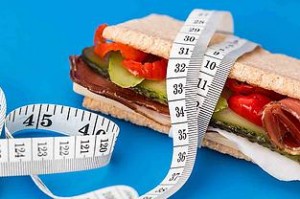That may sound like a joke that my son made up, but it will make sense soon. Unlike my son’s jokes:
Him: What do you call a man flying?
Me: We don’t know
Him: Me don’t know
Me: ? But it’s your joke.
Him:………..
Me: Fred?
Him: Yes. What do you call a flower eating a flower?
This went on for a long time.
Before we start, I’ll admit now: I don’t like counting calories. This is in large part due to laziness. To accurately track calories I would need to:
- Weigh every morsel of food I ate. And cooking changes the weight, so I’d have to weigh potatoes after boiling them, for example.
- Let’s say I’m making a cottage pie. I’d have to weigh and calculate the calories in every ingredient, work out the total weight and calories, and then weigh my individual portion and calculate calories as a percentage.
- I’d have to research the calories in everything.
- What if I don’t finish eating my plate? I’d need to weigh the leftovers and recalculate.
- I need to know my BMR (Basal Metabolic Rate) to know how many calories I burn at rest, and workout how many I need each day, depending on activity. To do this accurately I need to have the carbon dioxide and oxygen in my breath analysed. This seems a bit of a faff.
This is a lot of work, and I still wouldn’t be accurate with my numbers. Here’s why…
- Sometimes a food has calories in it, but we can’t access those calories. For example we don’t seem to fully digest peanuts, pistachios and almonds. A study found that the “average” person receives just 128 calories per serving rather than the 170 calories “on the label.”
- Some foods require more energy to digest them. Proteins can need 10-20 times as much energy as fats, but this loss of energy is not accounted for in food packaging.
- Sometimes our immune system has to get involved to deal with potential pathogens. We don’t know how many calories this would involve, but the rarer the meat, for example, the more pathogens.
- The more processed the food is the easier it is to digest, so again we use fewer calories digesting it. People eating wholewheat bread received 10% fewer calories than people eating white bread in this study.
- Genetic differences in us. If 2 people did manage to eat 2 identical potatoes, they wouldn’t get identical calories from them. Just like we vary on the outside, we vary on the inside. Russian intestines are 5ft longer than those of Italians. (I love this fact for some reason. I found it in this article, along with a lot of the other facts used in this blog.) In the same way we have different numbers of enzymes, and those with less lactase will extract fewer calories from milk than someone who isn’t deficient.
And our body’s handling of calories goes beyond digestion.
In The Lean Muscle Diet Alan Aragon writes: “a hungry guy might put away a million calories in a year. The daily average would be 2,750 calories, but nobody eats the exact same food every day. The number will probably fluctuate by a couple hundred calories a day, with a little more on weekends and holidays and a little less on weekdays. And yet, the average American gains less than a pound over the course of a year. Think about that: a million calories, spread over 365 days, and by the end of the year your body has probably stored just 2,000 of them. Your body is really good at keeping you in balance. The size and shape you are now is the exact size and shape you’ve conditioned your body to maintain.”
Put another way, Rudy Leibal, a leading obesity researcher, says “we don’t think body weight can be consciously regulated.”
In Diet Recovery Matt Stone agrees: “It can’t. In fact, a 70-year old person with 70 pounds of body fat has stored only one peanut per day more than they have burned. No one can control a process so precise. It’s like trying to increase your oxygen levels by breathing more.”
So, counting calories accurately is impossible, knowing your precise BMR is near impossible, and the body doesn’t allow you to control it that closely anyway as it’s trying to maintain your current weight.
And yet: counting calories works.
Weight Watchers, IIFYM, you name it. If you track the numbers and create a calorie deficit you will lose weight.
But what happens when you stop?
Some people may be happy to track every morsel of food that goes into their mouth for the rest of their life, but for most people, their diet has a finishing line, a weight loss target. And then they stop, and return to old habits, and I hear again and again, “I did a diet and it worked, but then I put the weight back on, so I’m going to do it again.”
A diet only has only worked if it has worked FOREVER! If you’ve regained the weight, then technically, in the long term, it hasn’t been successful.
Because people fall back in to their old habits. And that’s the key word here: habits.
If, instead of following a regime in the short term, you can successfully change habits for the long term, you will, gradually, lose weight and keep it off.
I’m not saying pay no attention to how much food you eat; portion control and selecting foods that make you feel more satisfied and so likely to eat less is one example of a way to monitor total calorie intake without calorie counting. I’m not even saying never count calories. I would happily support and help a client monitor their calories if this was the best way for them. Some people have no portion control and seeing the numbers can help bring that in to check. But there are other ways, and it must be done alongside efforts to change eating habits and restore a healthy relationship with food. Forever.
What’s that? Oh go on then, one more.
What do you call a man with a ladder? Ben.
If you have any comments or jokes for my son, I’d love to hear them.




Leave a Reply
Want to join the discussion?Feel free to contribute!